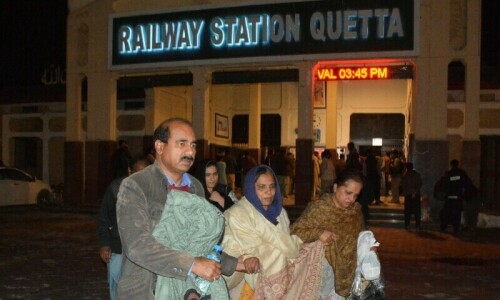ISLAMABAD, May 29: A three-day international workshop on the application of Islamic laws in the age of globalization ended here on Sunday with the recommendation that Muslim and non-Muslim scholars studying Islamic criminal law interact with each other. Dr Mohammed Khalid Masud, Chairman of the Council of Islamic Ideology (CII), which had organized the workshop, told reporters after the concluding session that the subject of the Islamic criminal law, being delicate and complex, had stirred up controversies in Pakistan and abroad.
As such, he said, the CII had decided to enter into networking arrangements with Muslim and non-Muslim scholars to gain better understanding of how Islamic laws were being applied in other Muslim countries.
Since people were getting accustomed to viewing the issue of Islamic laws through political lenses, the workshop was held for scholars to clarify and reconcile differing view points, the CII chairman said.
Dr Masud said the sharing of knowledge and the input of scholars through the networking would help the CII formulate its own recommendations for applying Islamic criminal law “within the Pakistani context”.
Quoting Abu Ishaq As-Shadibi, a Muslim scholar of 14th century Spain, who spoke of universal principles in Islamic jurisprudence with which other nations of the world were in full agreement, Dr Masud said the reason for establishing the networking arrangement was to gather the literature written by Islamic scholars.
The West was ignorant of this body of knowledge, he said. The networking would apprise western scholars with this heritage of Islamic criminal jurisprudence
After studying this body of literature, western scholars may be able to drop some of their objections about the nature of Islamic criminal punishments, said Dr Masud.














































